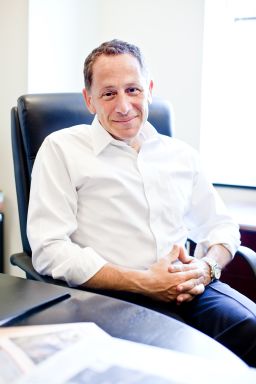Editor’s Note: David Rothkopf is a senior fellow at the Johns Hopkins University School of Advanced International Studies and a visiting scholar at the Carnegie Endowment for International Peace. He is the author of “Running the World: The Inside Story of the National Security Council and the Architects of American Power” and “The Great Questions of Tomorrow.” Follow him on Twitter: @djrothkopf. The opinions expressed in this commentary are solely those of the writer. This commentary has been updated to reflect the news.
News outlets have reported that President Donald Trump has decided to replace his national security adviser, H.R. McMaster. Trump was supposedly waiting to announce the decision until he could find a good next posting for McMaster, who remains an active-duty Army general.

The rationale was that this would be more dignified for McMaster. But of course, leaking the news of his imminent firing had the opposite effect. And it not only humiliated the general, it also undermined the effectiveness of the entire US national security apparatus at an extremely sensitive time when we face complex challenges involving North Korea, Iran, Russia and many other issues.
This being the Trump administration, this vitally important decision was undertaken with all the calm discipline of a “Ren and Stimpy” cartoon.
The truth could be, for example, that one of the main reasons no announcement was made is that while Trump knew he wants the independent-minded McMaster gone, he didn’t know who he wanted to replace him.
He has now selected John Bolton, former US ambassador to the United Nations. Bolton has distinguished himself as one of America’s most hawkish and ineffective diplomats for decades. He is known as an architect of the Iraq War, an enemy of multilateralism and foe of the United Nations, where he served during the George W. Bush administration through a recess appointment when he could not win Senate confirmation. He is also a harsh critic of the Iran nuclear deal and of North Korea, and is seen as someone who might promote conflict in both cases.
Few prominent national security figures are as ill-suited to the job of national security adviser as Bolton when you consider his views, his temperament and his ability be an honest broker. In fact, he is actually one of the few people on earth who would be worse than Mike Flynn, who was the worst national security adviser of all time.
That said, in Trumpland even the most outrageously grim developments have an absurdist subtext. In Bolton’s case, this was illustrated by a tweet from CBS News’ Jacqueline Alemany: “Just asked a source close to the White House if John Bolton’s mustache will go if he replaces McMaster as National Security Advisor. Source doesn’t think the ‘stache will go but call it a ‘sensitive subject.’ ”
That such a thing is even being discussed because of Trump’s predilection for clean-shaven aides and people who “look the part” reminds us just how off the rails we have gone.
Having reviewed the available options and the nation’s national security needs, if Bolton’s famed mustache must go, I would strongly support it for the job over him.
To be fair, there are other reported candidates who would be solid, sensible choices. Former Bush National Security Council official Stephen Biegun is serious, experienced and respected in ways that neither Bolton nor his mustache will ever be. But, then again, so was McMaster.
Therein lies the rub. More than almost any other job in government that of national security adviser is defined and then on a daily basis redefined by the President. The job is ill-defined by statute. The president determines whether he will empower the national security adviser by respecting the process he or she runs and heeding the advice that process produces. If the president does not or if he is disinclined to take advantage of the rich resources of the National Security Council staff because he doesn’t for example, like to read … or if he undermines the national security adviser, as Trump has done with McMaster, then even the very best candidate will fail.
The most effective national security advisers, such as Brent Scowcroft, Henry Kissinger or Zbigniew Brzezinski, were empowered by their presidents in ways that would be impossible given Trump’s narcissistic personality and volatility.
There are few jobs in the executive branch more important than national security adviser. And particularly at this dangerous moment, with turmoil both overseas and within the US government, with a personnel shuffle rocking the national security apparatus at the State Department, CIA and in the White House, how this transition is handled is especially important.
So far it has gone about as badly as can be imagined. Unfortunately, even if Trump had made a good choice to replace the ill-treated McMaster, it is unlikely to fix what is broken at the National Security Council. Because that’s not the national security adviser, it is the President –compromised, erratic, inexperienced, possessed of terrible instincts, corrupt and disrespectful of his office and those who serve around him as he is.


